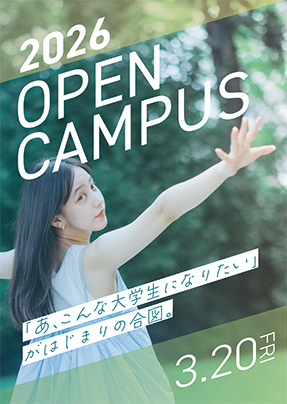理工学部の学生が八王子市立南大沢中学校にて米粉の「食べられるスプーン」を用いた特別授業と試食会を実施しました

7月2日(水)、本学理工学部丸田晋策ゼミを中心とした学生が、八王子産の吟醸酒「高尾の天狗」の製造過程で生じる副産物である米粉をアップサイクルして開発した「食べられるスプーン」を用いた教育プロジェクトの一環として、八王子市立南大沢中学校での特別授業と試食会を実施しました。
大学コンソーシアム八王子の令和7年度学生企画事業補助金に採択された本プロジェクトは、八王子市学校教育部給食課・教育指導課との連携のもと、子どもたちの創造性や探究心を育むSTEAM教育への貢献と資源循環型社会の推進を目指しています。
今回は八王子市立南大沢中学校にて、丸田ゼミの学生による特別授業を実施し、STEAM教育のモデル事業であるゼミの取り組みや製品の開発プロセスなどを紹介しました。また、丸田ゼミが開発した米粉バイオマスプラスチック製のイチョウとモミジのクリップ(八王子市章入り)を試供品として配布しました。その後の給食では、「食べられるスプーン」の試供を行い、SDGsの視点から食品ロス削減や地産地消の意義について中学生らと考えを深めました。
本プロジェクトの背景
丸田ゼミでは、これまで八王子の吟醸酒「髙尾の天狗」の製造過程で発生する副産物の米粉の有効活用に取り組んできました。その成果として、地域企業(株式会社セイホー)や専門的技術を持つ企業(株式会社勤労食, バイオポリ上越株式会社)と連携し、「米粉の食べられるスプーン」をはじめ、米率20%配合のバイオプラスチックゴミ袋や米粉50%配合のクリップなど、多岐にわたる地域密着型オリジナル製品の開発に成功しています。
本年度は、これらの製品の中でも特に完成度が高く、株式会社勤労食との連携により大量生産が可能となった「食べられるスプーン」を活用し、八王子市内の小中学生が地域の課題を発見・解決する力を育みます。今後は、小中学生から副産物米粉の有効利用に関するアイデアを募集し、学生とのコラボレーション事業の可能性を探ります。なお、「食べられるスプーン」は、クールセンター八王子での講座および地域イベントでも試供予定です。
本研究で扱っている米粉の米糠を含む部分には、抗がん作用があることが知られています。しかし、これまで分子レベルでの作用の仕組みは明らかになっていませんでした。今回の研究過程で、米糠の成分が、丸田ゼミで研究しているがん治療の標的分子(紡錘体形成因子)の働きを強く阻害することが実験によって示されました。この発見は、がん細胞の増殖を抑える新しい抗がん剤開発につながる可能性があります。具体的には、食品廃棄物を使った持続可能な薬剤や健康サプリメントへの有効活用の可能性を示しており、地域資源を活かした医療・産業連携モデル構築への展開も期待されます。







